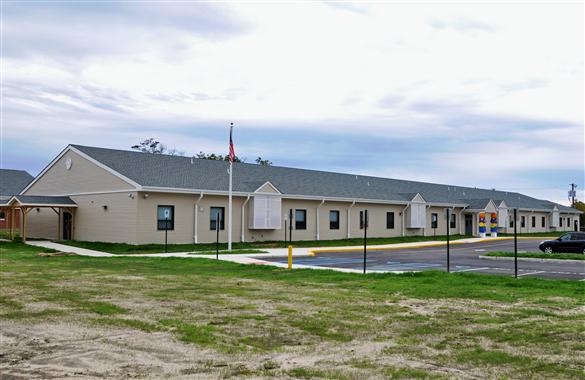If you are struggling with too little space but concerned about time and budget constraints, modular building companies in Maryland can provide you with cost-effective temporary or permanent space in a short timeframe.
Today’s code-compliant, factory-built modular buildings are not anything like those manufactured mobile homes you saw everywhere in the late 1950s to the 1970s. Instead, they are safe, secure and built to last. And the possibilities are endless because they can be customized to meet the needs of any business or industry.
Whether your business or facility is located in Maryland’s seaport capitol of Annapolis, the constantly evolving city of Baltimore, historic Frederick, the gateway to western Maryland, or the environmentally cautious Chesapeake area, modular construction can provide you with high-quality buildings on an accelerated timeline at a significant cost savings.

Earlier this year, even Google announced plans for a new modular campus headquarters in the Silicon Valley. The company intends to replace many of the stick-built buildings it currently occupies with taller modular structures that can be moved around and reconfigured as the company develops new product lines.
About Modular Construction
Like traditionally built buildings, permanent modular buildings are fabricated from steel, concrete and wood in a controlled factory setting.
Once engineering is completed, the framing process begins. As the frame moves down the assembly line, the walls are attached, followed by the flooring, interior wall finishes, windows, electrical wiring, plumbing, insulation, and custom components. Then, the roof is placed on the module and the modules are ready for transport by truck to the building site, where they are dropped by crane into place, shaving months off of the entire construction process.
Exterior finishes are typically attached while the doors and interior trim are being installed. With customized brick, stucco and other exterior finishes that are designed to blend in with surrounding buildings, it’s nearly impossible to distinguish a modular building from a stick-built structure.
One major benefit of factory fabrication is that it reduces the potential for errors. Accurate measurements minimize waste on the front end. Building materials are more carefully monitored and better protected compared to traditional construction on an exposed jobsite where there is often a lot of waste. Other benefits include:
- Sustainable Materials – Modular buildings are often constructed with recycled steel and sustainably sourced timber. They can compete in the same LEED categories as stick-built structures.
- Reusable – If you move or need to reconfigure your space, a modular building can be disassembled and the modules can be redeployed in new configurations or locations.
- Tighter Envelope– Modular construction usually results in a tighter building envelope, which increases energy efficiency and improved indoor air quality, mold and fire resistance. This is because transporting modules long distances requires them to be more durable and have better moisture protection.
- Cost/Time Savings – Modular construction reduces design and construction costs by 20% to 40% and shortens the construction timeline by at least 40%.
Modular buildings can be designed in single and multi-story configurations for use as office buildings, banks, churches and worship facilities, health clinics, man camps and dormitories, classrooms and even complete school campuses.
Get in touch with modular building companies in Maryland, such as Modular Genius, when you’re ready to build or expand without sacrificing high quality or innovative designs. The modular process is fast, budget-friendly and efficient, and floor plans and finishing touches can be customized to create virtually any type of residential, commercial or industrial structure you need.
